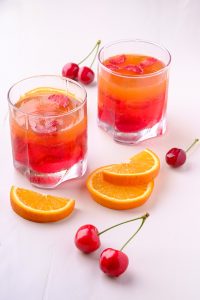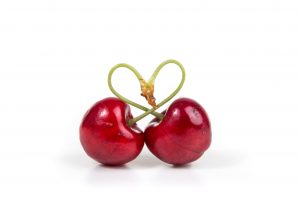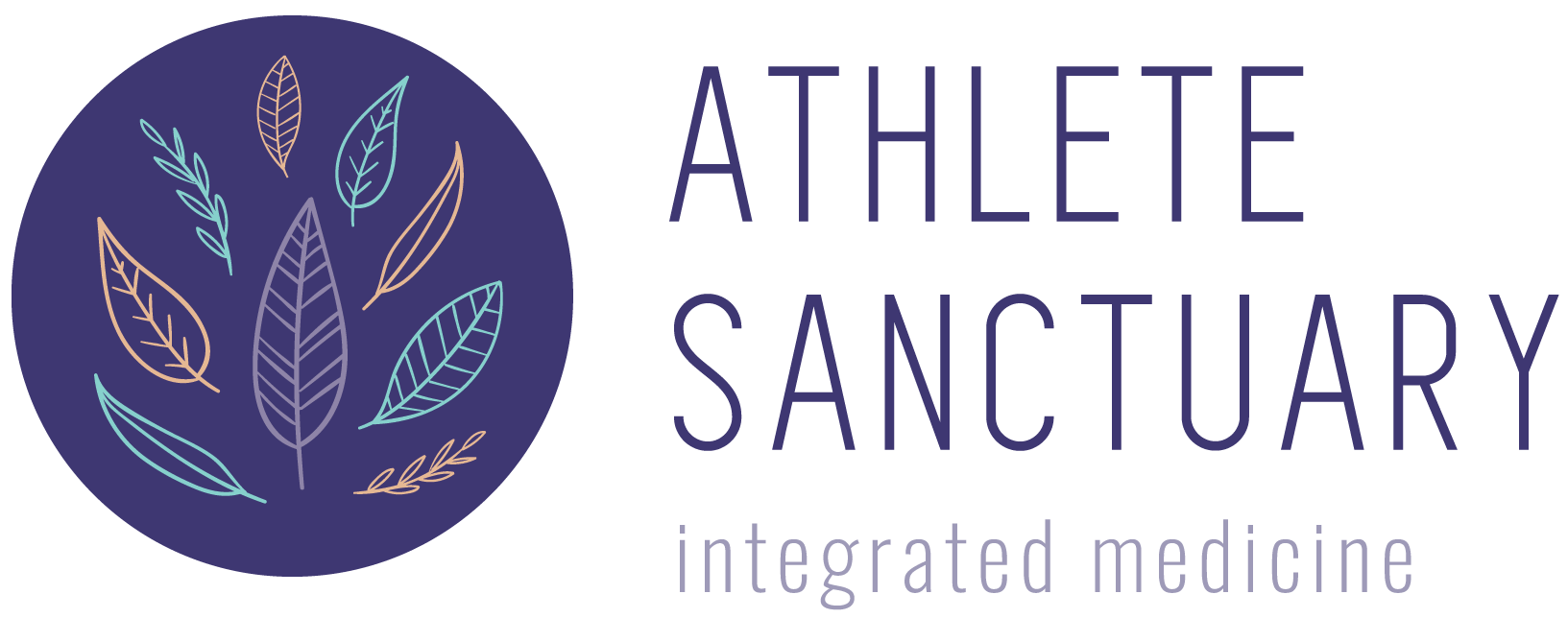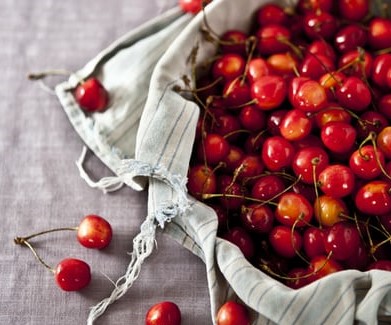Tart cherries have been used for decades to treat gout and osteoarthritis, but they also contain phytochemicals which stimulate melatonin, enhance sleep, recovery and sports performance and reduce inflammation.
Tart cherries contain the phytochemicals anthocyanins, flavonoids, flavanols and phenolic acids. Tart Cherries have a higher content of anthocyanins than sweet cherries and contain potassium, calcium, iron, magnesium, vitamins A, C, B6, E, and folic acid. Some sources suggest cherries have 19 times as much vitamin A & beta carotene as strawberries and blueberries!!
Evidence supports tart cherries
A 2016 study involving soccer players found tart cherry juice is efficacious in accelerating recovery following prolonged, repeat sprint activity, movement patterns often seen in soccer, AFL and rugby. The study also supports evidence that polyphenol-rich foods such as tart cherry juice are effective in accelerating recovery following various types of strenuous exercise.
A 2010 study involving recreational male and female runners competing in the London marathon, who supplemented tart cherry juice twice daily for 5 days prior and 2 days after the marathon showed improvements in muscle strength recovery, reduction of inflammatory markers and uric acid. The athlete’s total antioxidant status was 10% greater, while oxidative stress was lower in comparison to placebo.
Studies involving trained cyclists have also shown significant benefits when using Montmorency tart cherry concentrate on reduced oxidative stress, inflammation and muscle damage across 3 days of 109 minutes of road cycling racing when used twice daily for seven consecutive days. They concluded tart cherry juice has direct application for athletes competing in scenario’s where back-to-back performances are required.
How tart cherries help
Tart cherry juice may reduce pain and accelerate recovery after exercise and decreases blood markers of inflammation/oxidative stress in both strength and endurance exercise.
1. Reduces creatine kinase (CK) a pathology marker for muscle damage and breakdown
2. Reduces inflammation -shown in studies by reductions in interleukin-6 (IL-6), tumour necrosis factor-alpha (TNF-α), interleukin-8 (IL-8), interleukin-1-beta (IL-1-β) and C-reactive protein (CRP),
3. Reduces oxidative stress- it’s ORAC rating of 12,800 is one of the highest in the world.
4. Increases tryptophan, melatonin levels and improves sleep quality.
How to use Tart Cherry Juice for recovery and sleep
Tart cherry juice is unlikely to have beneficial effects during the adaptation/build stage of training, but when there is competition or intense training or multiday tournaments it may improve recovery. Examples of such competitions include: a rugby or AFL tournament, a marathon, a multiday cycling event, triathlon or an ultramarathon.
It is unlikely to be beneficial for consistent use where adaptation to the training stimulus is the athletes’ priority.
General recommendations found in the literature suggest having 30ml of tart cherry juice concentrate in 100ml of water twice daily. This equates to 60-90 cherries per serving.
Tart Cherry juice represents a more convenient way to ingest a large quantity of these polyphenolic compounds without associated side effects such as stomach pain or diarrhoea.
Take the 30ml in water first thing in the morning and in the evening. The evening dose is typically suggested one hour before bed to help facilitate quality sleep, which is of course an athlete’s primary innate recovery tool.
This protocol is suggested for 2-3 days post an event or strenuous training session.
We still need further research and larger studies involving athletes to substantiate claims that a preloading phase of 4-5 days prior to competition is required. It is unlikely that the compounds responsible for its benefits stay in your body long enough to accumulate over many days. Therefore, it remains questionable as to whether the loading phase is really necessary.
What to look out for and where to purchase?
There are many brands of tart cherry juice available online, in health food shops and in supermarkets.
Montmorency and Balaton TC varieties have both been studied; however, most researchers have used Montmorency brands (more predominant and widely available commercially to athletes).
Check the label on the bottle states the juice specifically contains either of these varieties.
The beneficial compounds (anthocyanins) in tart cherries are reduced with heat. Therefore it is important to source tart cherry products that are cold pressed if you wish to maximise the anthocyanin levels and possible benefits. There are a few companies who do this, so check before you purchase.
As a general rule most juices contain around 25 grams of sugar per 250mls but just remember you should only be having 30mls at a time. Low sugar options are available that contain stevia or vanilla extract but generally speaking the sugar content (3 grams per serve) is not an issue for most athletes.
You can expect to pay around $26-28 Aus for organic start cherry juice (450-950ml). The cheaper juices found in chemists or supermarkets are less likely to be cold-pressed.
We hope this information may inspire you to try something new that you may not have otherwise considered. As with all things, moderation and targeted use is more likely to yield desired benefits than overconsumption.
About the Author: Kate Smyth is a Sports naturopath, nutritionist and female-centric running coach. She is the founder of the Athlete Sanctuary- a holistic healthcare clinic for athletes of all levels and sporting codes. Kate has a thirst for knowledge with two bachelor’s and a master’s degree under her belt. She has been involved in sports for many decades and competed for Australia in the Commonwealth Games and Olympic Games marathons with a personal best time of 2 hours 28 minutes. For more information visit www.athletesanctuary.com.au
References:
Bell, P.G.; Walshe, I.H.; Davison, G.W.; Stevenson, E.; Howatson, G. (2014).Montmorency Cherries Reduce the Oxidative Stress and Inflammatory Responses to Repeated Days High-Intensity Stochastic Cycling. Nutrients, 6, 829-843.
Bell, P. G., Stevenson, E., Davison, G. W., & Howatson, G. (2016). The effects of montmorency tart cherry concentrate supplementation on recovery following prolonged, intermittent exercise. Nutrients, 8(7), 441.
Howatson G, McHugh MP, Hill JA, et al. (2010). Influence of tart cherry juice on indices of recovery following marathon running. Scand. J. Med. Sci. Sports 20:843–52.
McCormick, R., Peeling, P., Binnie, M., Dawson, B., & Sim, M. (2016). Effect of tart cherry juice on recovery and next day performance in well-trained Water Polo players. Journal of the International Society of Sports Nutrition, 13(1), 41.
Szalóki-Dorkó, L., Végvári, G., Ladányi, M., Ficzek, G., & Stéger-Máté, M. (2015). Degradation of anthocyanin content in sour cherry juice during heat treatment. Food technology and biotechnology, 53(3), 354-360.
Vitale, K. C., Hueglin, S., & Broad, E. (2017). Tart cherry juice in athletes: a literature review and commentary. Current Sports Medicine Reports, 16(4), 230-239.



